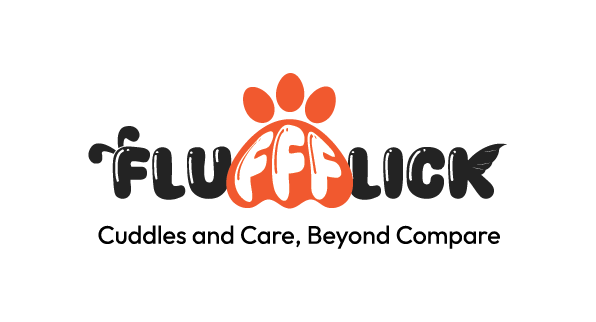Choosing the best food for your pet is one of the most important decisions you can make as a pet owner. The right diet ensures that your pet remains healthy, happy, and full of energy. However, with so many options available, selecting the perfect food can be overwhelming. This blog will guide you through the key considerations, including nutrition, ingredients, and what makes the food appetizing for your pet. Whether you’re feeding a cat, a dog, or another beloved animal, understanding the basics of choosing pet food is essential for their well-being.
1. Understanding Pet Nutrition
The foundation of your pet’s health lies in the quality of their nutrition. Just like humans, pets require a balanced diet that includes proteins, fats, carbohydrates, vitamins, and minerals. Each nutrient plays a specific role in keeping your pet healthy:
- Proteins: Essential for growth, muscle development, and overall body function. Look for high-quality protein sources like chicken, beef, or fish when choosing pet food.
- Fats: Provide energy and support healthy skin and coat. Omega-3 and Omega-6 fatty acids are particularly important for maintaining a shiny coat and reducing inflammation.
- Carbohydrates: Offer a source of energy and help with digestion. While some pets, like dogs, can benefit from carbohydrates, others, like cats, require fewer carbs in their diet.
- Vitamins and Minerals: These micronutrients are crucial for various bodily functions, including bone health, immune support, and metabolic processes. Ensure the food you choose is fortified with essential vitamins and minerals.
When choosing pet food, always look for a product that meets the specific nutritional needs of your pet’s species, age, size, and health status. A balanced diet tailored to your pet’s requirements can prevent common health issues and support a long, active life.
2. Reading and Understanding Ingredients
The quality of the ingredients in your pet’s food is directly related to its nutritional value. Always check the ingredient list on pet food labels:
- Real Meat: The first ingredient should ideally be a real meat source, such as chicken, beef, or fish, rather than a meat by-product or filler.
- Whole Grains and Vegetables: These ingredients provide essential fibre, vitamins, and minerals. Whole grains like brown rice or oats are better than refined grains.
- Avoid Fillers and Artificial Additives: Look for foods without artificial colours, flavours, or preservatives. Also, avoid fillers like corn, soy, or wheat, which provide little nutritional value and can cause allergies in some pets.
- Special Diets: If your pet has specific health needs, such as weight management or food sensitivities, consult with your veterinarian about selecting a specialized diet that includes the right ingredients to address those issues.
3. The Role of Appetizing Food in Pet Nutrition
While nutrition and ingredients are paramount, the food must also be appetizing to your pet. Even the most nutritious food won’t benefit your pet if they refuse to eat it. Here are some tips to ensure your pet enjoys their meals:
- Flavour Variety: Some pets enjoy a variety of flavours. Consider rotating between different flavours or types of food to keep your pet interested in their meals.
- Texture: Pets can be particular about texture. Some prefer crunchy kibble, while others enjoy the softness of wet food. Find out what your pet likes and incorporate it into their diet.
- Palatability Enhancers: Some pet foods include natural flavour enhancers like meat broth or gravy, making them more appetizing to picky eaters.
- Milk for Dogs: While milk can be a tasty treat for some dogs, it should be given in moderation due to the potential for lactose intolerance. Always monitor your dog for any digestive issues when introducing dairy products.
4. Special Considerations When Choosing Pet Food
When choosing pet food, it’s important to consider your pet’s unique needs. Here are some special considerations:
- Age: Puppies, kittens, and young animals require more protein and calories for growth, while senior pets might need lower-calorie diets to prevent weight gain.
- Size: Large breed dogs may benefit from formulas that support joint health, while small breeds need smaller kibble sizes to prevent choking.
- Health Conditions: Pets with conditions like diabetes, kidney disease, or allergies require specialized diets. Always consult your veterinarian when selecting food for pets with health issues.
- Activity Level: Active dogs may need higher-calorie diets, while less active pets might benefit from weight management formulas.
5. The Importance of Consultation with a Veterinarian
Selecting the best food for your pet is a decision that should be made in consultation with your veterinarian. They can guide the best nutritional plan for your pet’s age, breed, activity level, and health status. Regular check-ups also help monitor your pet’s health and adjust their diet as needed.
Conclusion
Choosing the right food for your pet is vital to being a responsible pet owner. By focusing on nutrition, understanding ingredients, and ensuring the food is appetizing to your pet, you can make informed decisions that promote your pet’s health and happiness. Whether you’re selecting food for a dog or another type of pet, always consider their needs and preferences. And remember, regular consultation with your veterinarian is key to keeping your pet healthy and thriving.

